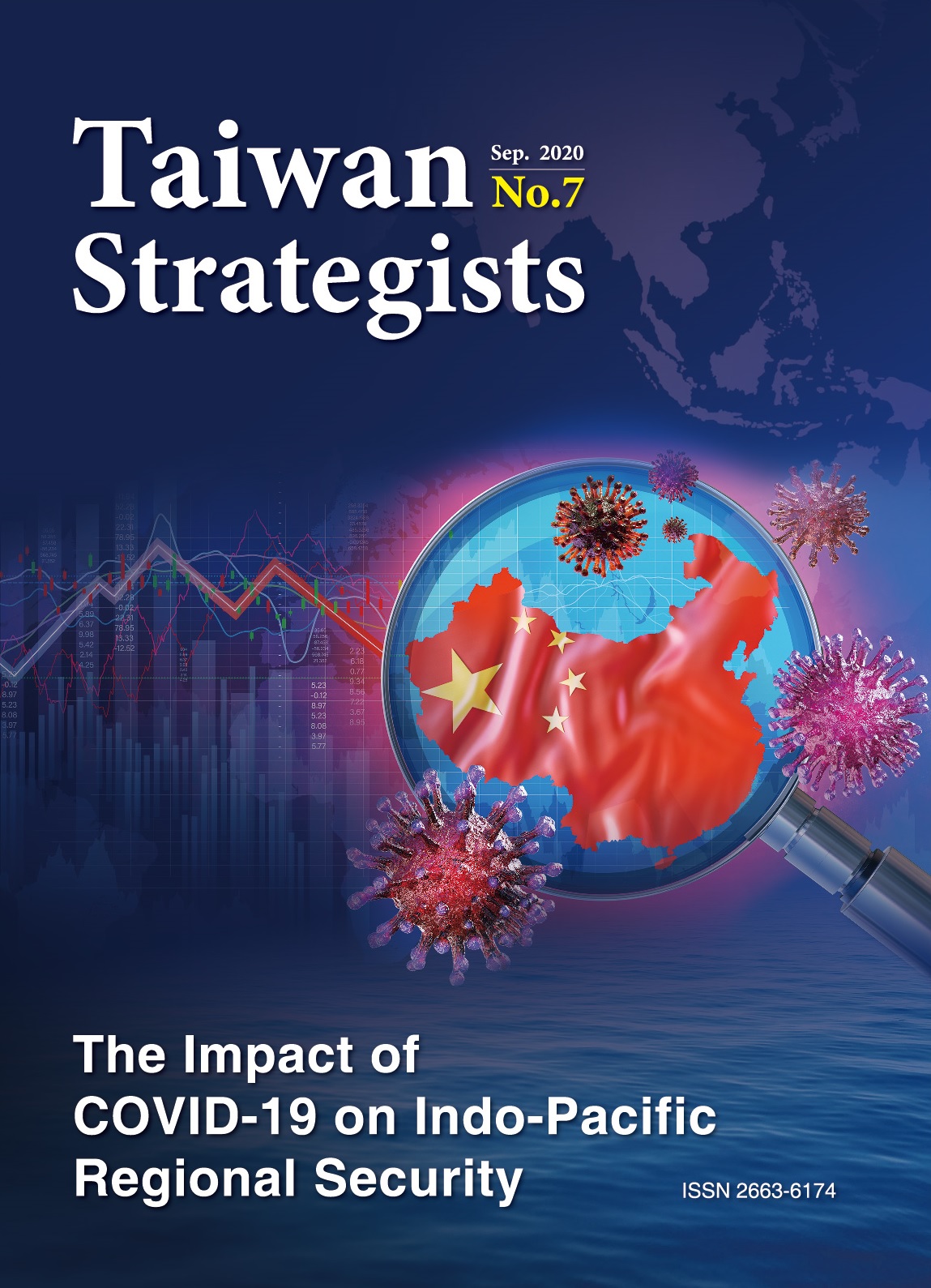The Impact of COVID-19 on Indo-Pacific Regional Security
Taiwan Strategists No. 7 (September 2020)
An Analysis of the U.S.-China “New Cold War” and COVID-19 on China's International Image
Professor, Institute of Strategic and International Affairs,
National Chung Cheng University
The COVID-19 has brought the U.S.-China standoff to the edge of unrestricted warfare. The U.S. has stressed that the pandemic has gone from being a simple domestic catastrophe in China to a major event that is changing human history. China, on the other hand, is covering up the pandemic and using the pandemic to expand its influence, holding live-fire drills in the South China Sea and even passing the Hong Kong National Security Law, intensifying its judicial persecution of Hong Kong prodemocracy activists, which has worsened U.S.-China relations. Along with the ever increasing toll of the confirmed cases and deaths from the pandemic, more and more countries in the world have decided to reduce their dependence on China, restructuring global industrial supply chains. In addition, COVID-19 exposes Chinese Communist Party's “administrative efficiency”, which violated the principle of universal values of freedom, democracy and human rights. All of these events have posed critical challenge to China's international image.
Keywords: COVID-19, U.S.-China Relations, U.S.-China New Cold War, China's International Image, Unrestricted Warfare
An Analysis of the China-India Relations from the Perspective of Indo-Pacific Security
Associate Professor and Director,
Graduate Institute of Strategic Studies, National Defense University
The issue of China-India borders, which can be traced to the military clashes in 1962, continues as the root of discord between the two giants in Asia. China and India both take the disputed pieces of territory as core interests. They are inimical to each other on this issue and are emphatic of their strong will not to budge an inch. Given their relentless effort to strengthen military infrastructure and force deployment along the borders, once a demonstration of power erupts into clashes, it will surely impact Indo-Pacific regional security, which will force neighboring countries into a quandary. Despite the diplomatic effort that has been made to ease the tension, skepticism towards each other remains. Thus, the picture has not changed significantly—any triggering events sustained by historical grievance and geostrategic concern may bring about armed clashes. Only when New Delhi is capable of having the Indian voice heard through the region via its foreign policy and economic activities checking China's expansive acts, can international society recognize India as a key pillar of security in Indo-Pacific and South Asia.
Keywords: China-India Relations, Indo-Pacific Security, Ladakh Border Conflict, Doka La incidents, Belt and Road Initiative
North Korea's Role and Its Impact on Indo-Pacific Regional Security
Graduate Institute of International Politics, National Chung Hsing University
Since the “ice breaking journey” in early 2018 when the two Koreas participated in the Winter Olympics together and conducted a series of bilateral summits following the games, the nuclear challenge centered on North Korea seemed to be at a new turning point. Nonetheless, after about a year of pushing the “smile diplomacy,” and as long as Pyongyang has no intention of abandoning or revising its nuclear and missile development programs, any dialogue with North Korea will only be used by that country to buy time to boost its military capability. Furthermore, due to limited progress on denuclearization, the trade war between the US and China, the Covid-19 pandemic, and with North Korea launching missiles again, the situation has become more complicated, and it seems hard to have any positive expectations for the near future. In this paper, I will analyze the role of North Korea in recent developments in regional security and how Pyongyang thinks about its survival strategy according to national and family interests, before discussing the potential future developments on the Korean Peninsula.
Keywords: North Korea, Nuclear Policy, Korean Peninsula, Indo-Pacific, Regional Security





